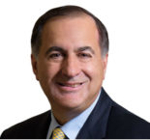
Governance Surveys
Environmental, social, and governance (ESG) issues have increasingly occupied space on board agendas over the past few years; and now, as activist investors are recovering from pandemic-related slowdowns, boards will need to pay even closer attention to stakeholders’ ESG concerns.
To better understand the powerful combined forces of ESG and activism in the current business environment, Alvarez & Marsal sat down with Joe Berardino, a managing director at the firm and expert in leading companies through transformational change, and Vic Svec, a managing director in Alvarez & Marsal’s ESG Services practice.
Joe, for decades now, you’ve advised on investor activism and worked with boards and management teams to unlock hidden value. What would be your main takeaway on what drives investor activism?
Joe Berardino: To me, ESG fits well into the recognized playbook for activism, which most often comes down to a few basic ingredients—value, path, and plan. The first piece is proprietary screening that answers the question: Is this stock undervalued? Second: Is there a path to bring a hypothesis to a CEO or board, can you get an audience, can you get a board seat if you need one? And finally: What is the plan—both to win the day with a broader shareholder group and to actually implement the value-creation turnaround? It’s a tall order, but ESG provides more tools in the kit for activists.
Vic, you’ve overseen both ESG and activism preparedness at the Fortune 500 level. Why is the combination of these two areas so powerful these days?
Vic Svec: Building on Joe’s comments, ESG provides real opportunities for value creation, along with new avenues for “outside-in” analyses. Multiple reports demonstrate the very real value creation for ESG leaders over laggards. The jet stream of pressures by investors, customers, and employees toward greater transparency in sustainability is powerful. Also, campaigning activists look for anything they can throw at a company, and a company’s ESG ratings—good, bad, or ugly—are there for all to see.
How widespread are ESG factors in investor activism these days?
Berardino: You could argue that activism has always revolved around the “G”—that activists engage because they believe that governance has not been sufficient for the company to pursue the optimal path for value creation. But specific ESG components—apart from splitting a company in two or pursuing diversification, say—are increasingly important. In fact, reports suggest that most shareholder resolutions in recent years have been ESG-related.
What would be the most important bit of advice for a board member concerned about potential activism around ESG?
Svec: If you remember just four letters, I’d suggest they would be BYOA: be your own activist. Wake up every day and ask yourself, “If I were an activist investor (and, by the way, you are), how would I approach my role differently?” Then, dig deep, look at the four corners of your public ESG profile, identify ESG risks and mitigation approaches, and tackle initiatives before someone else takes you to task for inactivity.
How would you characterize the lessons learned around activism from your career of creating value and transforming companies?
Berardino: Well, I could probably share a top 10 on lessons learned around corporate transformations . . . but I’ll focus on three. First, leadership is absolutely essential. The board and management have to be aligned. The CEO has to lean in and drive the transformation. The full board has to be engaged. . . . You can’t delegate this to a board committee. Second, transformation cannot be solely cost-cutting. A proper transformation focuses on the customer experience and what more is needed to create truly switched-on, loyal customers.
Finally, a company has to be willing to do the hard stuff early rather than hoping it takes care of itself over time. That includes the board, which can sometimes still become a little society, with members recruited to blend in and hesitant to make unpleasant suggestions.
Do you believe that the body of evidence that demonstrates that ESG creates value over time is growing?
Svec: Absolutely. Just a few examples: BofA Securities research shows ESG leaders earn a premium of up to 20 percent of baseline companies and also enjoy a weighted average cost of debt up to 200 basis points below base. Goldman Sachs reports that the spread of return on invested capital over weighted average cost of capital is 5.4 percent for top-quintile ESG companies versus 3.6 percent for bottom-quintile companies for the last decade.
Allianz research of 6,000 companies over 12 years demonstrates ESG parameters as “significant early warning indicators” to identify firms that pose excess risk. Finally, a University of Cambridge study of 2,000 ESG-related activist engagements showed they generated an average excess return of 2.3 percent for the year following the initial engagement over that of their comparable peers.
How do you unpack the effects on value creation of underlying ESG actions, activists becoming more engaged, [and] companies responding to activists becoming more engaged?
Berardino: It’s a fascinating question but also somewhat academic. Whether companies create value because of ESG activities . . . or whether well-run companies also tend to focus on ESG . . . the result is the same.
If a company brings the urgency and focus of an activist in taking steps to unlock value, marshals the leadership of the board and management, executes well, and communicates those actions to the street, they will have accomplished the objectives without the pain of disruptive outside influences. That’s a sign, perhaps, that ESG and activism have both served the greater good.
Alvarez & Marsal is an NACD partner, providing directors with critical and timely information, and perspectives. Alvarez & Marsal is a financial supporter of the NACD.

Joe Berardino is a managing director with Alvarez & Marsal and brings over 30 years of experience in managing complex board and C-suite dynamics to enact change.

Vic Svec is a managing director with Alvarez & Marsal's Environmental, Social & Governance (ESG) Services practice and brings more than three decades of corporate experience in investor relations, social responsibility and ESG, and corporate communications.
